#indian american
Text
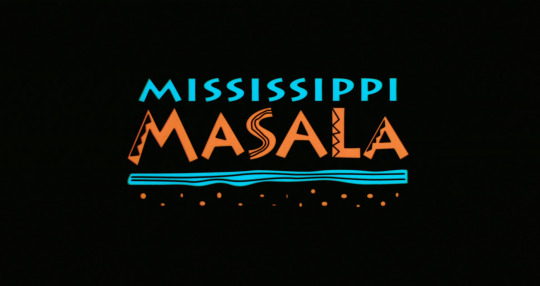

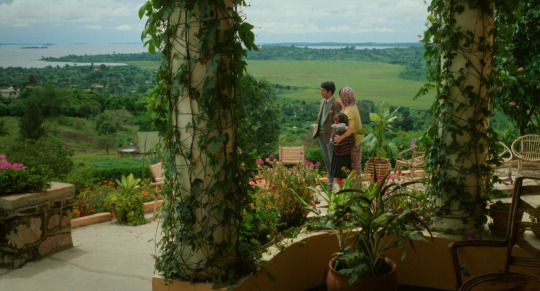
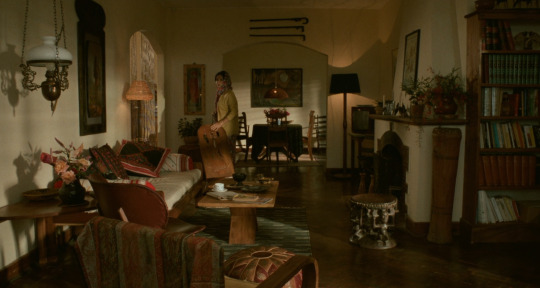
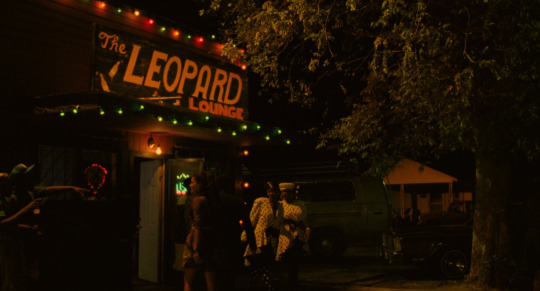
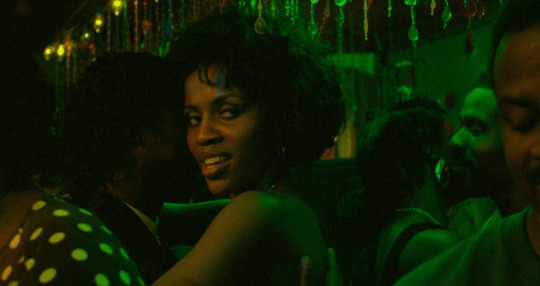
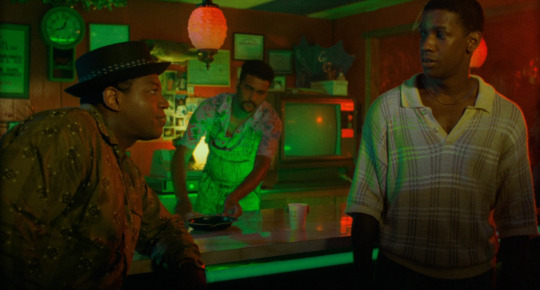

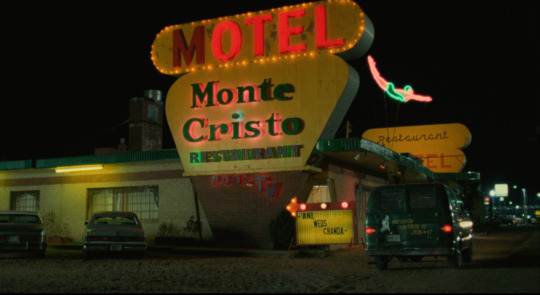
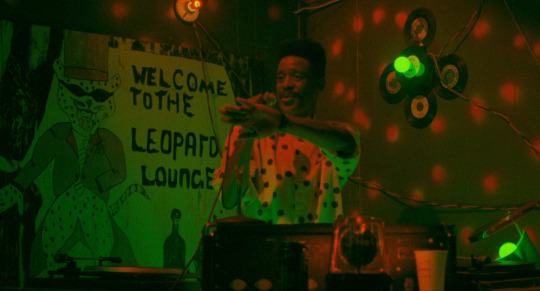
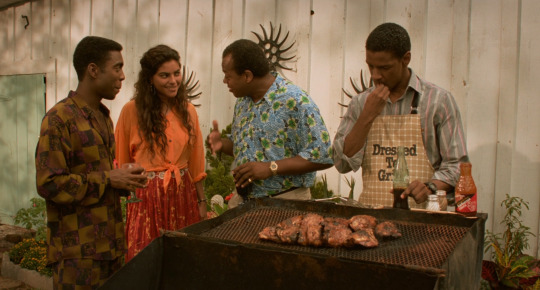
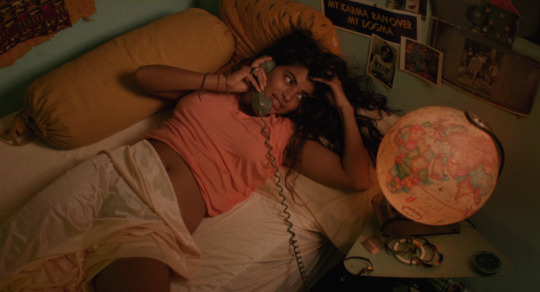
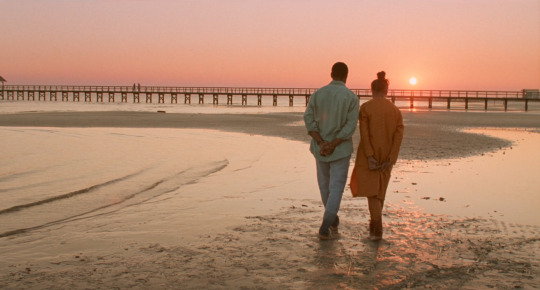

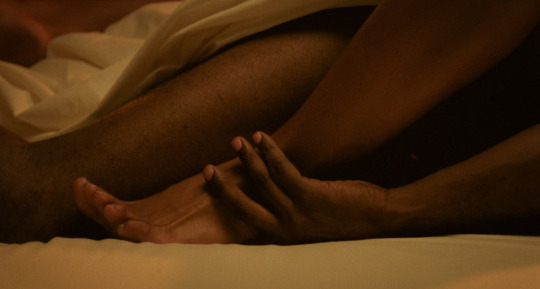
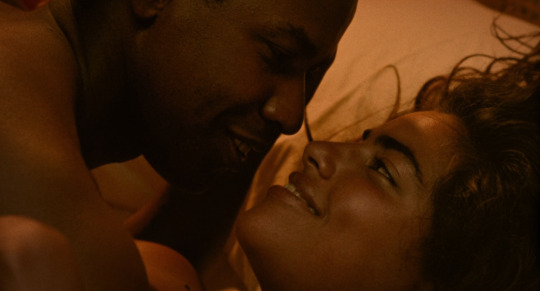

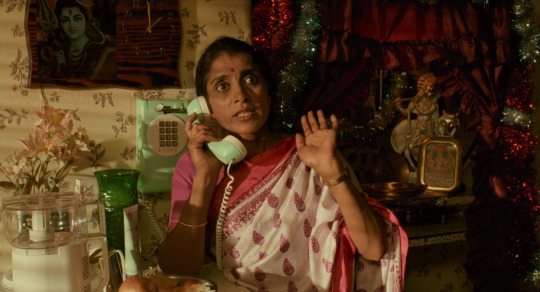
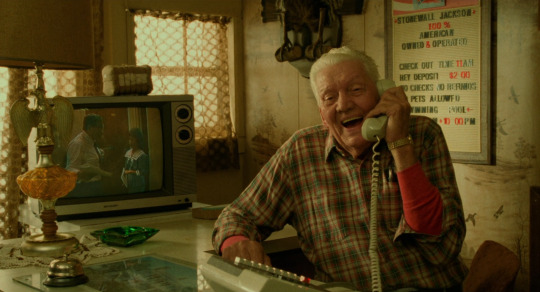
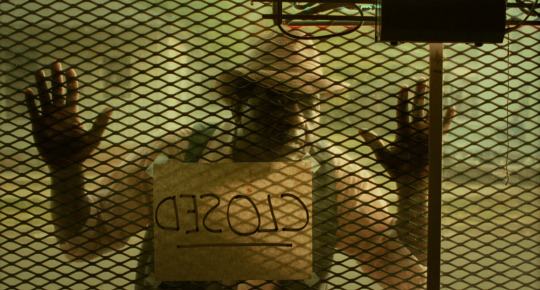
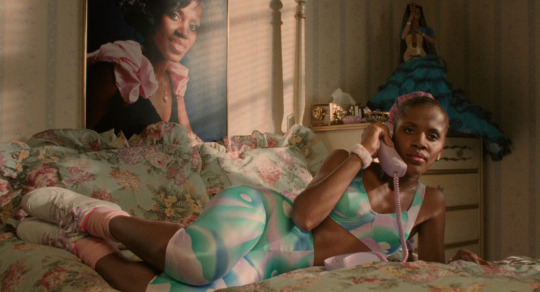
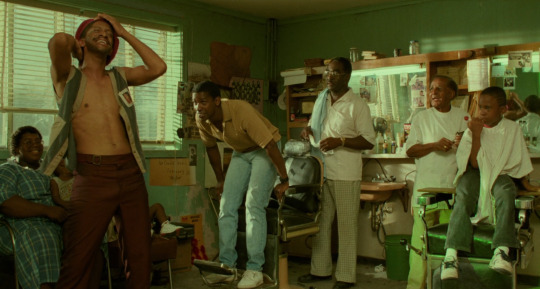

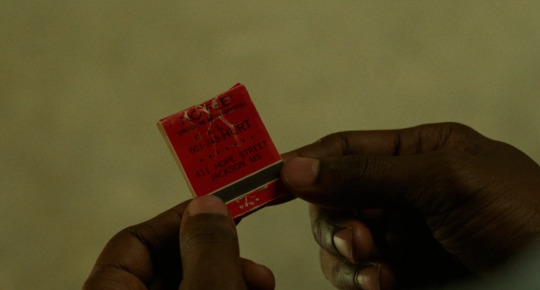
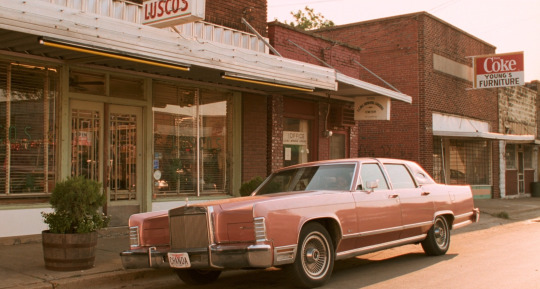
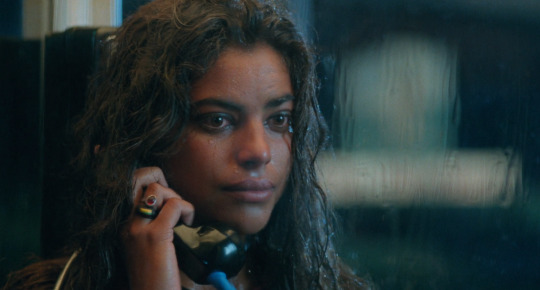
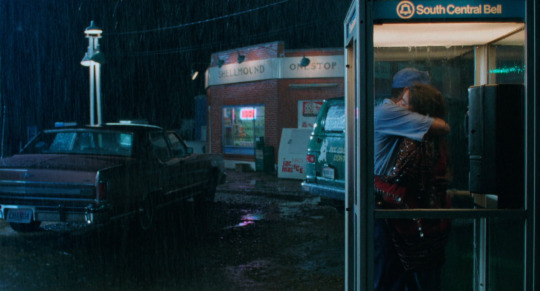
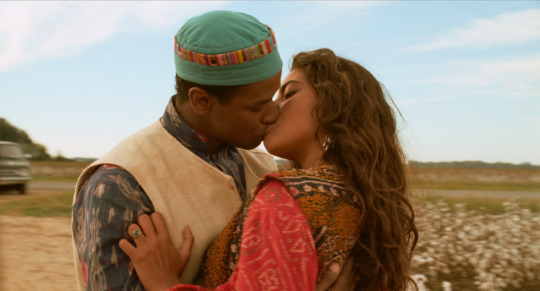
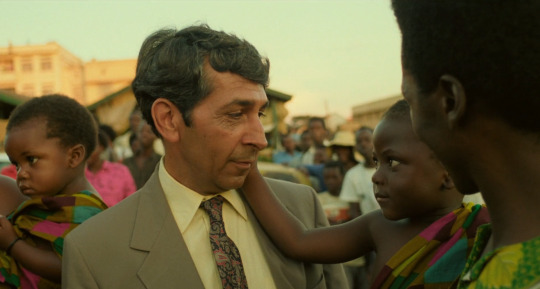
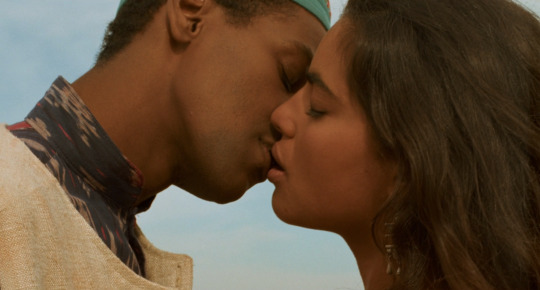
Mississippi Masala (1991)
Director: Mira Nair
Cinematographer: Edward Lachman
Production Designer: Mitch Epstein
Costume Designers: Ellen Lutter and Susan Lyall
Starring: Sarita Choudhury, Denzel Washington, Roshan Seth, Sharmila Tagore, Charles S. Dutton, Joe Seneca, Ranjit Chowdhry, Mohan Gokhale, Natalie Oliver-Atherton, Sahira Nair, and Konga Mbadu.
#mississippi masala#1991#mira nair#sarita choudhury#denzel washington#sharmila tagore#natalie oliver atherton#romantic comedy#costume design#feminist film#female directed films#90s movies#independent film#mississippi#cult classic#criterion collection#indian american#black history month#steamy#female directors#woman director#directed by women#1990s#90s fashion#production design#cult film#90s cinema#feminist cinema#romantic movies#90s aesthetic
66 notes
·
View notes
Text
Meet Kavi Sharma, the 2023 Girl of the Year and first ever South Asian Girl of the Year.
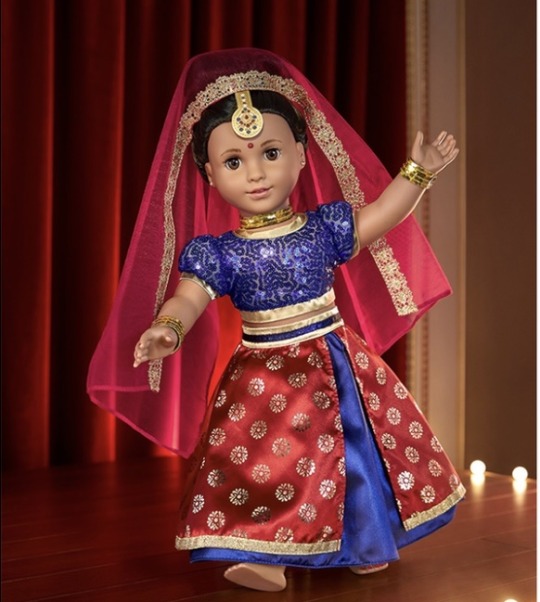
#american girl#american girl dolls#Kavi Sharma#indian american#asian#south asian#representation matters#ag#the arcadia ledger
257 notes
·
View notes
Text
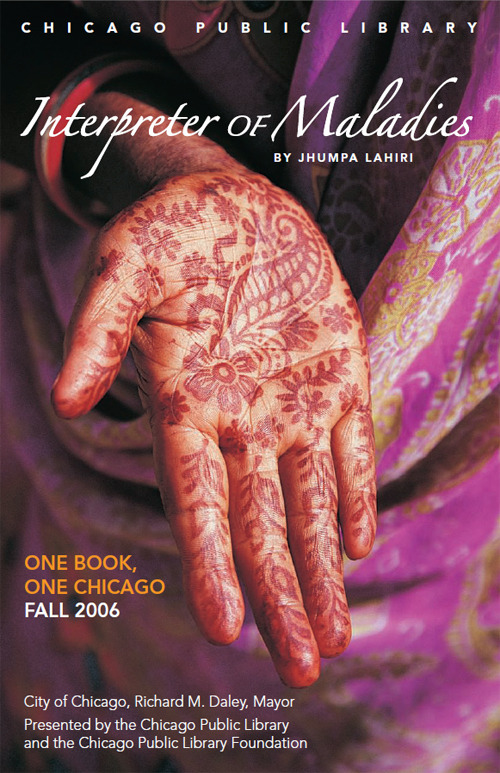
#short story collection#short story collections#interpreter of maladies#jhumpa lahiri#british indian#british american#indian american#asian american#asian british#english language literature#20th century literature#just barely 20th century lol it was published in 1999#have you read this short fiction?#book polls#completed polls
15 notes
·
View notes
Text
Bespeckling
Take the water in your hand and sprinkle it over the banana leaf. Wipe the water off the banana leaf, taking any dirt with it. Get offered a spoon. Refuse it: you’re not an American even if you really, really are. Put rice on your leaf, then sambar. Mix. Eat off the banana leaf. Realize that banana leaves were a better example for your scholarship essay than turning the lights off. Consider a world where disposable plates are replaced by giant leaves, which are completely biodegradable. Imagine the faces of the snobbier white people you know at the idea of eating off a leaf that hasn’t even been cleaned with soap since it was plucked. Accept the fact that this would be ludicrously impossible to implement and probably lead to a nightmare of monoculture banana farms and laminated leaves. Remember that Indian bananas are so significantly better than American bananas because they’re a different clone set. Finish the rice. Fold the banana leaf in half to be disposed of. Wash your hands.
#To bespeckle is to mark with small spots#this happens to me every time i go to india#just a solid “oh right; these people actually have a culture that connects to the land around them”#which i might have had if my family had stayed#instead we picked an inarguably materially better life#to be clear my family in india lives in a city#this is not some tribalism return to nature nonsense#just cultural practices that come about because had a culture for centuries#creative writing#my writing#library of babel#unedited#sustainability#indian american#india
13 notes
·
View notes
Text
Fave Five: LGBTQ YA with MCs of Indian Descent
The Loophole by Naz Kutub
Jaya and Rasa by Sonia Patel
What a Desi Girl Wants by Sabina Khan
We Are Totally Normal by Naomi Kanakia
All the Yellow Suns by Malavika Kannan
Bonus: There’s no official pub date yet, but keep an eye out for Just Happy to Be Here by Naomi Kanakia
Double Bonus: While Scavenge the Stars by Tara Sim is set in a secondary world, Amaya’s father is from a country modeled on…

View On WordPress
#All the Yellow Suns#Desi#Indian#Indian American#Jaya and Rasa#Just Happy to Be Here#Malavika Kannan#Naomi Kanakia#Naz Kutub#Sabina Khan#Scavenge the Stars#Sonia Patel#Tara Sim#We Are Totally Normal#What a Desi Girl Wants
31 notes
·
View notes
Text
being indian-american and also very Gender is hilarious, a vignette
i think the easiest term for what my gender is, or sometimes isn't, is genderfluid. i don't think i've ever truly been able to understand the concept of gender, or how it's ever applied to me. but i'm not completely agender, either.
some people might argue that calling gender a performance can be a bullet in favor of bigots, who wish to treat trans people as just "disillusioned kids playing dress-up", as a teacher i once met in high school so succinctly put it. but gender is something i feel more tangibly in terms of performance, and i can't really put it in other words that make sense.
i find myself at odds with who i was, ten years ago. when gender felt like something out of my hands, an understanding waiting to be reached within my brain, hoping that one day it might solidify into something on a binary side, or at the very least, leave me with nothing at all to worry about.
(and when that didn't end up happening, a firm resolve to at least learn to deal with the constant dysphoria, await the supposedly masculine or feminine shifts in perspective the same way i anticipated and dealt with blood work results.)
i find myself at odds with that because gender to me now, and the way i feel it, is wholly performance. perspective, perception, their resulting behaviors and viewpoints, are all so fluid. and the way my gender shifts, flows into another, is still not something i am entirely in control of like the way i once wished, but something i can wield in the environment or situation in which i find myself, regardless of how it shows itself at that time.
anyway.
the way i dress most days is androgynous, so that if gender taps me on the shoulder and asks to be my skin for a few hours, i can work with it. but today was more masculine, and i was going downtown, so i decided to wear something to reflect that - an open floral shirt over a t-shirt with a golden chain, jeans, sneakers, and of course, a backwards baseball cap. which is about as southern california dude/butch of an outfit you can get without wearing swim shorts and a tank top.
and on the way back, i had to stop by an indian cultural event because a family friend was participating.
indian culture is very strict to the gender binary. this opposes some parts of vedic philosophy, in which the body is a mere shell for the soul, and so the soul is inherently without the idea or limitation of gender. it also renders gods as genderless, though we have the separation between gods and goddesses in mythology. many hindus haven't followed the true meaning of the scripture for a long time. but that's besides the point.
indian men tend to gather, standing or sitting, in groups while their wives shop, and not to talk- to steadfastly stare in opposite directions, and if they do talk, it's about politics. or the latest moon mission. indian women hover, stall to stall, either staring fearfully at their husbands or cheerfully talking with store owners, or silently comparing prices while taking stock of the different languages within nine square feet of them.
my experience of the indian american performance of gender, outside of what bollywood puts on screen, is, in a word, careful. everyone wants someone else to know, to notice, that the way they are dressed or the volume of their voice is deliberate. that the gold earrings they're wearing are 24K and they got them on their last trip to India over the summer. that they will fit in with the rest of their half of the crowd if they lower their voice, speak less, speak more, laugh louder, eat pani puri or samosas any more or less delicately than the man or woman next to them.
standards of being an indian man or woman are trained into us as young children, so that we grow up with a clear idea of what that looks like. how to dress (within american standards, but also indian standards, but also gender standards), how to talk, what topics to discuss, how to stand diminutively to avoid attracting attention, what to say to make others stay within their own gender boundaries, and let them recognize that we're doing the same.
great how that turned out, huh.
so when they're confronted with someone who doesn't fit any of those standards, who doesn't want to, who simply wants to exist in a culture that thrives on conformity and oneupmanship, they don't know what to do.
and standing with my father in this event market crowd was interesting. because i was deliberately performing masculinity in my clothing and stature, and people were thrown off. nearly every woman was in a chudidar or a dress or wearing makeup, staring at me and my long hair and my decidedly non-feminine presentation, trying to reconcile those. trying to figure out exactly why my mother let me leave the house dressed like this, because you can't escape your indian parents' clutches even as an adult. trying to know exactly what i was, failing, and turning back to the other women with one eye on the merchandise and one eye on me.
and it wasn't the fact that i wasn't in indian dress- there were plenty of people in western clothing- but rather that i stood by my father, equally silently, in a crowd of men looking like they'd rather be anywhere but there, holding on to gender not as a bargaining tool or a tenet, but as a rippling, nebulous key.
#gender#genderfluid#gender fluidity#gender performance#indian#indian american#lgbtqia#what i find funny#is probably not what other people find funny#but making people uncomfortable is one of my talents#and gender helps with that
4 notes
·
View notes
Text
CARDAMOM
The scent of my mother, my grandmother,
Boiled in the water, with a clove or two,
Add the leaves, add the milk,
Pour from a distance (to cool),
Place in a cup that’s earthen, bhar,
I think of my mother, my grandmother,
As I sip on my cup of cardamom and tea.
2 notes
·
View notes
Text
Favorite Asian/Pacific Island American Authors!
. . . and quite possibly my favorite authors of all time! Show their beautiful books some love!
Traci Chee :: The Sea of Ink and Gold trilogy 📖✨
Roshani Chokshi :: The Gilded Wolves trilogy 🐺
Julie C. Dao :: Rise of the Empress duology 🐍
Sabaa Tahir :: An Ember in the Ashes quadrilogy 🔥
Stacey Lee :: The Downstairs Girl ✉️
#asian american#asian pacific american heritage month#asian american authors#japanese american#indian american#filipino american#vietnamese american#pakistani american#chinese american#asian authors#traci chee#the sea of ink and gold#roshani chokshi#the gilded wolves#julie c dao#forest of a thousand lanterns#sabaa tahir#ember in the ashes#stacey lee#the downstairs girl
48 notes
·
View notes
Text
actually… fuck it positivity time. i love being indian-american i love wearing jhumka and chudiyan with cowboy hats and boots i love feeling a sense of belonging in two countries i love relating with two different cultures i love those two different cultures coexisting in me i love my indian love of family and helping i love my american sense of independence and pride i love interjecting hindi into my everyday speech i love teaching my grandmother english i love chai and oreos i love pounding monsoons and the delhi crush i love gorgeous sunsets and dallas skies i love feeling at home in two separate worlds i love screaming taylor swift with my friends here i love blasting badshah with my cousins in india i love being indian-american i love being indian-american i love love love
#desi tag#desi#indian american#positivity#im just loving life today and that’s not even sarcastic#the world is beautiful and so am i#🐋.txt
3 notes
·
View notes
Text
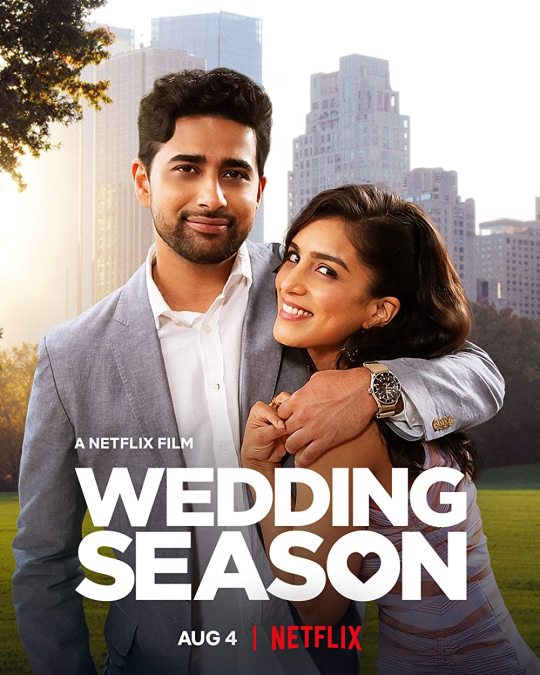
Wedding Season (2022)
🎬Pressured by their parents to find spouses, Asha and Ravi pretend to date during a summer of weddings, only to find themselves falling for each other.
📝A predictable film which is still sweet and cute. There are no surprises in this movie so if you are looking for a plot that is complicated, with more depth to the characters then this isn't a film for you, however, if you are looking for a feel good, romantic film with no violence and stressful stuff, then this is worth a watch. Be warned, it's not original but it's charming and enjoyable. Also it's a romantic story set during the Indian wedding season so it's colourful and cheerful.
youtube
#wedding season#wedding season netflix#indians abroad#indian wedding#indian american#pallavi sharda#Youtube
11 notes
·
View notes
Text
You know, I don't think we talk enough about what it's like for a person of color to grow up in a community that's mostly white.
For this reason I shall be sharing my experience. Why? Because I have a lot to say and I need to get it off my chest :) So, uh feel free to read my rambles...
oh and if you relate to any part of this or want to share your own story, please tag me I'd love to hear about other people's experiences.
-------
I was born in India. The state where I'm from mostly spoke a language called Telugu. But I don't usually tell people that because I don't want to spend ten minutes helping them pronounce it correctly. Sure, I could just ignore it when they say it wrong but then that would feel like I'm disrespecting my own culture. So normally I just avoid saying it to begin with.
Because of this barely anyone knows how literate I am in my mother tongue. And honestly it's kind of sad that it's an accomplishment. there are so many people that I know that genuinely can't pronounce some of the simplest words and it's honestly painful. I can speak, read, and write in Telugu. But no one knows this because I don't tell them. Why would I when it's more effort to have to explain that "No, Indian is not a language. Hindu isn't one either that's a religion".
India has 22 official languages, many more tribal languages, and thousands of unique regional dialects. I can guess roughly what region of India someone is from with the accent they have in English.
And don't get me started on my name. I'm not doxxing myself obviously, but my name happens to sound very similar to a particular English word. And boy, do I know it. It's not like I'm told every single time I introduced myself to someone. As a kid I thought it was cool. But I'm 18 now and knowing that some people assume what my name means because it sounds like a different word is beyond infuriating. While again, I'm not revealing the actual definition, my name is pretty common in telugu and Tamil songs because it's meaning is really poetic. it's a beautiful name and I love it, and to know that 80% of the people I meet won't respect that because of silly ignorance is just so frustrating.
Friendships are weird too. Like 2% of my school was brown. and of that only like .1% of my school is from the same area of India as me. See that's significant, because the culture in different regions of India varies greatly so if I were to meet a Punjabi, the most we'd probably relate to is maybe a Bollywood movie we both like (yes this is anectdotal).
And that isn't to say I don't have Indian friends. I have desi friends but it sometimes feels like the only reason we're friends is because we have the same skin tone. We barely relate beyond that. And even then it's barely even that. So many people of color, for one reason or another lose touch with their culture. Somehow I'm in the group that hasn't fallen victim to this, but it's so hard. You never feel american enough, or Indian enough. (or whatever culture you're from).
I try super hard to stay connected to my culture and heritage. because it's such big part of who I am. Whether it's pairing jhumkis with a really cute sundress and a Lengha blouse with ripped jeans, or practicing reading and writing in Telugu so that I stay fluent and don't forget. And most importantly, I've dedicated a significant portion of my life to learning Indian classical dance. through that I've learnt so much about our history, customs, religion, mythos. I've been learning since I was 3 years old (and I'm doing my arangetram in September which is exciting!!)
Sometimes when I'm out and about and I see an Indian person, and bonus if overhear them speaking Telugu, I'll just start humming a popular song or pretend I got a call from my mom and talk really loudly in Telugu, and they always look at me and smile and there's this random sense of kinship with strangers.
But then I'll be with my friends, who while aren't all white, they are all much more.... American (?) than me? and I just won't bring up anything culture related.
It's like my identity is split in two. American me at school, and Indian me for family friends. And I'm sure a lot of bipoc can relate to this particular identity crisis lol. At times I feel like I fit into the stereotype too much and by doing so I'm perpetuating it. Ahead in school, teacher's pet, know it all, etc. But at the same time it feels like I don't fit the stereotype enough and that no one will take me seriously as an Indian because of. I have shit grades, horrible work ethic, didn't get into any fancy colleges and whatever.
I will say though the one positive is that I have, by some stroke of luck, never faced racism growing up. I've heard the horror stories but I have been so fortunate as to growing up in an mostly open-minded, welcoming, and friendly community. Although it is dominantly white, most people are respectful enough to say anything thats outright cruel or harmful.
There is a catch, however. While no one intends harm doesn't mean harm is done. I can't even fault people for it because I know it comes from a place of ignorance and genuine curiosity. 90% of people wouldn't say those things if they realized how rude or whatever it can come across.
A little example: When a friend of mine was in 8th grade this white kid leans over to her and asks "Are all Indian babies born with a dot on their forehead?" She wasn't even wearing a bindi that day! At the time it happened both of us were doubled over laughing with literal tears in our eyes. But looking back, that question really was incredibly ludicrous. But the boy genuinely thought it.
And of course almost every brown person has been asked "do you speak Indian, or Hindu." Which again, comes from a place of ignorance and frankly stupidity.
I thank every person in my life for how kind and welcoming they are. But for the love of god, think critically about what you're about to say before you say stuff like that, it would prevent a lot unintentional harm. If you leave this rant with anything, let it be that.
And if you're not sure, just ask if it's okay to say it. Be conscious of it. It's okay to make mistakes, but be open to be educated on what is or isn't okay. We're the experts. We're not going to get mad when we know you don't mean any harm.
The same goes for any minority group. LGBTQIA+ and its infinite sub-sects, bipoc, the various neurodivergent communities.
I did not talk about religion because I'm still figuring out my stance on that. But it's worth mentioning that I don't eat beef out of respect .
phew
Thank you for coming to my Ted talk :D
And if you relate to any part of this or want to share your own story, please tag me I'd really love to hear about other people's experiences.
#I've wanted to say something for so long#so here it is#this is really important to me so thanks for reading if you got this far#bipoc#bipoc experiences#minority#indian#telugu#indian american#minority experiences#identity crisis#culture
12 notes
·
View notes
Text

#native american#indian american#indianhead#california#vintage#i love you#vintage denim#just women#vintageshirt#los angeles#denim#vintagesweats#vintagesweatshirt#harmony
6 notes
·
View notes
Text
Indigencies
My father grew up dirt-poor in a village in India. My grandmother valued education, and with her prompting, he managed to get an engineering degree and an educated wife, coming to the United States.
Alternatively: my mother’s mother was the most hardworking woman in the world, running multiple businesses, doing the housework, and raising her children. As a high schooler, she held an (unsuccessful) hunger strike to promote her right to an education. She passed on that determination to her daughter. Between my mother’s ludicrous work ethic and terrifying ambition, she found a husband with her goals and gained a medical degree in two countries, settling in the United States.
Either way, my mother and father, through luck and hard work, came here with the skills to better this great country. My mother maintained throughout my childhood that there was nowhere to gain success like the US. She worked at a hospital until the administrators determined that an endocrinologist wasn’t profitable enough to justify on staff, at which point she opened her own practice. My father worked at a bank until one of his college friends suggested an entrepreneurial software-producing business, and as such, Multicoreware was born. Both of them brought new jobs to Sunset Hills and provided a necessary service that wouldn’t have existed if they weren’t there.
The word “indigenous” means “native to the land one is living on,” but the term “indigency” simply means “poor.” My family is, under some definitions, indigenous to India, but according to all definitions, we suffer indigence nowhere. We have, in fact, never suffered indigence in our lifetimes. My dad got his education through scholarships, but he did get his education. My mother was even more privileged. Don’t get me wrong, she didn’t have air conditioning or pasteurized milk. She was still wealthy by most Indian metrics, though, and that wealth allowed her to get a degree, which was fundamentally important in getting her green card.
That’s important. Regardless of how you spin their rags-to-riches story, neither of my parents literally started in rags. My father got closer than my mother, but ultimately, neither of them were starving on the street, and there are a lot of people in India starving on the street. Those people don’t end up in the US.
Did you know that not all Asian Americans are wealthy? I don’t mean that literally, obviously some Indians start gambling recklessly or get trapped by a lack of universal healthcare. I mean that “Asian American” is a demographic so large as to be useless. If you break down the overall group, you’ll find we’re harshly divided between people who immigrated like my parents and refugees, making up the top 10% and bottom 10% of US earners. Isn’t that funny?
My family’s from Missouri, Saint Louis specifically.
In the meantime, my parents bought a suburban house and had two daughters. Becoming a doctor or engineer is well-known in India as a ticket to success, but my parents taught my sister and I to value the opportunities this country had, so we followed our hearts instead. My sister bounced around for a while, studying psychology and sociology, but she settled on educational nonprofit work, helping kids in India succeed. She works in fundraising, convincing potential philanthropists that their cause is a good enough one to sponsor. My sister is, I’ve been told, very good at her job; listening to all the office politics is always amusing. I became an ecologist and conservationist. It’s less of a non-sequitor than you’d think: my family adores national parks and hiking, and there’s something so fundamentally beautiful about this continent. Come to the Midwest: we have the best thunderstorms in the world. My job is something I would never get to do in India, and it’s good chunk of the reason I’m so grateful for this country.
On a related note, I said that indigenous means “native to the land one is living on,” but it is more complicated than that. Indians living in India, for example, are rarely called indigenous. It’s a specific kind of colonization that creates the concept of indigeneity. The settling of other people on your land is a necessary step of the process.
Even if that wasn’t true, I wouldn’t be indigenous anywhere. I was born in Missouri: even if I return to India, I will be an American returning to the place of her forefathers, not an India returning to their home country.
There’s actually a thriving Tamilian community in Saint Louis. That’s the reason my parents chose to move there. Of course, by the time I was old enough to really notice social atmospheres, we’d ended up alienated from said community through common drama, so that didn’t affect me much.
By the time I was born, my family had established a pattern of traveling to visit India every year or every other year. Though it is important to understand your roots, we go there for more practical reasons. My grandparents deserve to know me, and my mother runs a charity organization.
The organization has warped over time. At first, we helped fund a school. Then, my mother began running diabetes clinics for rural Tamilians. Nowadays, my mother has been campaigning for an increase in millet-based diets instead of white rice-based diets.
I don’t think either of my parents want to move back to India. It’s still important to take what we’ve learned in the US and return it to India. We owe the country that much.
The result of all of this is that it’s accurate to say my family is from a colonized culture, not an indigenous one, but I am from neither. Within the US, we are primarily aligned with a colonizer culture, enjoying its luxuries and upholding its narratives. I’ve been saying for years that I am more American—using “American” to mean “from the United States,” which is its own can of worms—than I am Indian. I was born in the US, and I was brought up here. These are the opportunities that I have most enjoyed. This means that, regardless of my genuine love for this country, I am a colonizer that has put down roots.
I wonder, sometimes, if I would have connected more with India if I connected more with the community in Saint Louis. I probably would have, I think. I barely know how to celebrate Diwali, and I don’t know any of our other holidays. I’m Hindu in a lazy, abstract way. I don’t speak Tamil.
On the other hand, I’m Indian enough that I don’t get to be American, not all the way. I’m not a pie chart—70% American, 25% Indian, 5% something else—but I might as well have been, the way people used to talk to me.
I’ve gotten something else from our trips to India, though. I’ve knelt in stone temples and before my great-grandmother. I’ve wandered through drip-irrigated farmland and watched my mother bring reusable bags from India because there was nothing like our woven bags in this country. Frugality, sustainability, humility, and spirituality all mean the same thing to me, nowadays. As we were bringing our Western education to our home country, I brought pieces of my home country back to the West.
As an ecologist, this is tricky. In a lot of ways, my field is simply an attempt to gather the knowledge that indigenous people already knew, and we have a bad habit of writing off their credits or overwriting their narrative. On the other hand, my family is from a colonized culture, and there’s a chance my perspective will be worth something because of that. I cannot turn my back on this field. It’s my duty, as somebody who has a chance of understanding the tangles in the connection between culture and conservation, to remain in this field, attempting to help where I can and uplift marginalized voices.
I went to India in high school then again just after the pandemic, and I think I found something worthwhile there. I mean, at first I had to really search for it; I don’t know how my sister finds it so easy to love that country. I really did try, though, and I did find something. I went to this farm vaguely connected to the school my family used to help fund—I don’t think we’re involved anymore, and my mom’s current charity efforts are leaning more chaotic than anything—and I noticed that they were using drip irrigation. After that, I started looking for that sort of thing, and I found it absurdly common. The average Indian I’ve met has no concept of conservation, but they do understand waste and how to avoid it, and often there’s heavy overlap. There are also cultural values surrounding the concept of duty, mindfulness, and practicality that I think really are valuable: I doubt Rama would have much time for fast fashion, prince or no.
As an adult who knows how to look at the world through a cultural lens, I’ve been trying to learn about other culture’s views on conservation as I do my research. UC Davis is trying to include more information on Native American views on sustainability in its curriculum, and I’ve been reading Braiding Sweetgrass in my free time. It’s important to weave scientific methods with indigenous knowledge when promoting sustainability.
Still, I’m worried that I’ll become as complicit, as academia isn’t always built to further true understanding. We have a way of talking as though we have knowledge and indigenous groups have practices, when in reality it’s much more complicated than that.
After that, I started putting real effort in, and I think I’m doing a good job of it. I read the Gita, which was a very good book, and Sundara Kanda, which really wasn’t. I’ve been wearing churidars the last few years, and I bought a Saraswati statue to put next to my Ganeshas. I started meditating. I learned to make chapathi. How many pieces can you put together before you’ve made one whole Indian?
And I really am trying to take this understanding of why culture is important and use it to reach out to others. Solidarity is really important. Did you know that it’s an Indian who attacked affirmative action most recently, the idiot? How do they not realize that racism chips at us all—
Anyways. I inexplicably started with Judaism—well, not inexplicably, I got guilty when I realized I knew more about Nazis than Jewish people—trying to get a shape of what cultural practices look like in the US. I don’t think I did an amazing job, but there’s only so much you can get from books. After that, I started reading more international authors, which I’m not certain did anything, but I enjoyed The Locked Tomb series immensely, so maybe it’s alright.
Cultural understanding is incredibly important work and, in ecology, time bound time bound. We are embedded in a mass extinction of our own making, and we need to work immediately to prevent everything from getting worse. As such, I’m getting a Masters degree, the a PhD, then I’ll get an entry-level government position and work steadily to—
Of course, leaving academia and moving to direct activism would be the most morally correct thing to do, but I’m not certain I have the personality matrix for it. Perhaps I should invest more of my free time into volunteer work.
Most importantly, I really am trying to understand the Native American perspective on the United States, specifically from within California because understanding one culture well seems better than stereotyping a million, but that’s such a massive undertaking, and I really don’t want to come off too white savoir-like as I do it, and if understanding Judaism from a book is impossible I don’t know why I’m trying with Potawatomi culture, Jesus Christ at least I’ve met a Jewish person before—
It’s not about understanding every culture on earth; I understand that. My curiosity drives me to understand everything, but from most people, all that I have are whispers. An rudimentary understanding of Chi from Iron Widow overlaid with giant mechs and messy polyamory. The Peruvian Sacsayhuaman, meaning vulture feast, after the mass of bodies that lay there after the conquistadors had finished their work. The layer of powder on temples in India, leftovers from the stuff that’s supposed to go on your forehead.
It just feels wrong to know so little about the land I’m walking on. A’nowara’kó:wa means Turtle Island, and according to Braiding Sweetgrass, that’s the actual name for North America. I learned that a month ago.
I kind of hate India, but I know it’s mine. It’s not like the US which I’ve had to claim over and over again. The US had to be imprinted on to me through birth certificates and accents and yelling “I am a patriot!” at disruptive times. I was Indian the moment I was born; the land itself is pressed into my skin.
The land I was born on belongs to someone else. It’ll always belong to someone else. That’s not okay, but it has to be.
The work we’re doing is difficult, but it’s the only practical way to make a difference.
We need a revolutionary change, and soon. Continually spinning my wheels like this is useless.
You know how the word “Indian” doesn’t mean actual Indians in the US? I mean, it might be different nowadays, but when I was a kid, “Indian” meant Native American first. I have, in the 20 years of my life, refused to refer to Native Americans as Indians, even when that was their preference. I don’t care that it wasn’t their fault, that “Indian” was as imposed on them as it was stolen from us. It’s our word.
Well, recently I learned that “Indian” wasn’t created by Indians either. The Greeks saw people living around the Indus River and started calling them Indians, but even “The Indus River” was a Greek term: the original word for it was Sindhu.
That’s not why my parents named me Sindhu. They wanted a Tamil name, and for us, Sindhu means “music,” and music is something transcendentally meaningful. It’s funny: that’s not an Indian thing, I don’t think, but it still feels Indian. All of this feels Indian. When I think of India, I think of grime and exhaustion, but when I think of Indians, I think of bright colors and music and how God connects us to the natural cycle. No wonder their country was named after a river, after music. No wonder I am named after my country.
One of the frustrating things about engaging with culture is that it’s the kind of work that’s never finished. It feels like mental health upkeep: it’s vitally important, and if you ignore it long enough you collapse, but lord is it exhausting. We need to put the work in to understanding each other, and colonialism is so baked into the fabric of the US that I don’t think we can progress without addressing it. That doesn’t make it easier to lose and gain appreciation for your country on loop. When an immigrant assimilates, how do they differ from the colonizers that surround them?
I don’t think I’ll ever be happy with my relationship to India. There’s always something more I could be doing, another revelation on the horizon. I don’t think I’ll ever be happy with my relationship to A’nowara’kó:wa either. I just live on it.
#Indigence means poverty.#This is the best thing I've written for library of babel hands down#i'll almost certainly edit it to make a real piece#fun fact: the color scheme was originally black-red-green but I switched it for the sake of color blind people#this started from a scholarship essay#the gist of which is written in the black text#I do agree with what I said in that essay but I also agree with the other two narratives I put down#Or not agree with precisely#things can be emotionally true without being literally true#colonialism#us imperialism#immigrant daughter#immigration#indian american#tamilian#the american dream is killing me#creative writing#my writing#library of babel#unedited#original works#new writers on tumblr#ecology#i don't want to put anything in the indigenous tag considering im not indigenous#so i guess we'll end it there
3 notes
·
View notes
Text

This is me and my Hindudes when Diwali rolls around! I love celebrating the glory of my birth culture! These silly Americans will never take away my love for butter chicken and Holi! They don't know what it means to be cultured! They'll never make me into just a "Brown Face!" me vhen i am having the gallbladder surgery...
2 notes
·
View notes
Text
I'm obsessed with Never Have I Ever and I'm counting down the seconds till the 4th and final season.
In the meantime, watch us try and decide who the better option is for Devi - Ben or Paxton?
What do you think?
youtube
#never have i ever#mindy kaling#benvi#benviedit#dexton#netflix#comedy#devi vishwakumar#paxton hall yoshida#ben gross#nalini vishwakumar#indian american#high school#teenagers#Youtube
6 notes
·
View notes
Text
Outgrown
It's only one more year until I can sweep this country under the rug like the shards of a broken wine glass; something that was once sparkling and translucent and pristine, but is now nothing more than inconvenient pieces to clean.
It's not that it hasn't had its fair share of good times. It's been vivacious and loud like a houseparty and it's been soft and mellow like a candle-lit dinner. But it's never been home. It's never been a greeting all of my neighbours or knowing shortcuts around the area or walking the streets without needing directions type of home. It's always been being hyperaware of my foreign accent or slipping off mini-skirts and crop tops in restaurant bathrooms, just to avoid the stares. The judging. It's always been teetering on a fine line between never fully indian but not american enough. I’ve never been able to just be.
But there were moments where I felt fully at home, with people who made me feel like I belonged, completely. Rare, but they existed. Moments where I felt like there was no other place in the world I'd rather be- dim lights and bad rom coms and pepsi that made me sick to my stomach the next morning- but they were worth it. Nights full of trashing movies and braiding hair and face masks and bubbly, innocent laughter. People that lit up my eyes with jokes and filled my soul with pure comfort.
But unfortunately, now they're all tainted. After all, how is it possible to watch videos from the past fondly when the tv they're played on has a cracked screen?
As the years passed by, the layers chipped off of everyone like a coat of cheap nailpaint. The shiny gloss wore off and there they stood, in all of their flawed, imperfect glory. Those who were once my 'ride-or-die' became phone calls when time would allow it, or hasty text messages typed out between classes. But still, I loved them. There were still those sleepovers and late night video calls and shopping sprees- what did it matter that they turned to the bottle more than to me? There were still those rambunctious inside jokes and birthday parties- what did it matter that they spent more time on potential hookups than their friends? There was still the past- what did it matter that the present reality was bleary and disheartening? Their essence, our essence, was all still intact, right?
Alas, the past isn't enough to keep something alive forever. A matchbox from years ago won't suffice to start a fire now; there just aren't enough matches inside of it any longer.
As the days go by, it feels more like a countdown than truly living. I live yearning for the day when these people, these caricatures, are nothing more than a contact on my phone. A day when I can turn off that tv with the memories on loop, throw the entire thing out, and buy a brand new one to place in my new bedroom. A day where I don't need to romanticize my every action just to have the energy to go on. A day where existing will finally feel easy again.
This country has been a warm jacket for five long years, but it's done its share of keeping me warm. The hands have gotten too short and the fleece is stained with dirt and the zipper gets stuck every now and then- it's simply time for a change.
#something feels off about this one but i can't figure it out#either way#i do love this country#but i'm tired of the people i'm always surrounded by#it's just been too long and they've all changed too much#and memories aren't enough to salvage relationships forever#writing#writers on tumblr#prose#spilled prose#prose writing#my prose#growing up#change#teenagers#high school#abcd#indian american#friends#friendship#moving on#spilled thoughts#spilled ink
6 notes
·
View notes